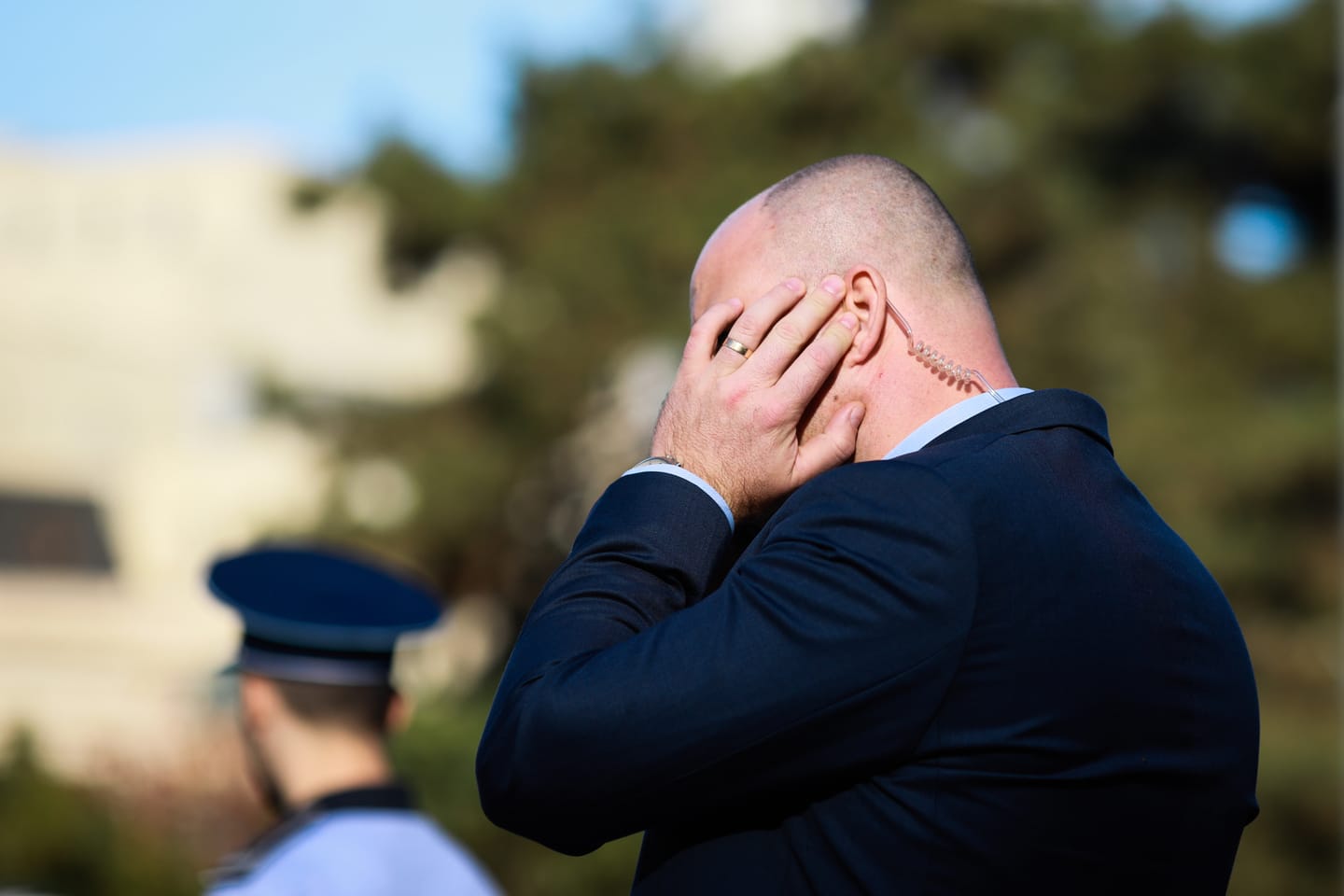Estimated reading time: 8 minutes
Strolling along a lively urban lane with somebody devoted to protecting you at your side—that’s the scene. Now imagine feeling that sudden chill of vulnerability when they miss a beat. That’s what it feels like when bodyguards drop the ball. Common bodyguard mistakes, like failing to anticipate threats or not doing enough surveillance detection, can lead to such moments of peril, underscoring the importance of vigilance and preparedness in personal security.
Maybe it’s an oversight during event prep or a momentary lapse in attention; these aren’t your run-of-the-mill blunders. We’re talking high-stake common bodyguard mistakes that can put lives on the line.
You’ll soon see why constant vigilance isn’t just a buzzword—it’s the lifeline in personal protection. You’ll understand how even whispers carry weight; silence can deafen in security communication circles. Discover that planning isn’t merely about logistics but survival tactics, too.
Come along as we peel back the curtain on these common mistakes security guards make and share insights to dodge them with finesse—because nobody should have their safety gambled away over avoidable errors.
Table Of Contents:
- Understanding Common Bodyguard Mistakes
- The Importance of Constant Vigilance in Close Protection
- Communication Breakdowns in Protective Details
- Inadequate Preparation and Planning
- Misjudging Threat Levels
- The Pitfalls of Over-Reliance on Physical Interventions
- Neglecting Professional Development
- Ignoring Client Comfort and Privacy
- Avoiding Complacency in Routine Assignments
- Contact GRS Protection for Expertise in Personal Security
- FAQs in Relation to Common Bodyguard Mistakes
- Conclusion
Understanding Common Bodyguard Mistakes
Common bodyguard mistakes happen but can have severe personal and close protection consequences. Think about it—when a bodyguard slips up, it’s not just an “oops” moment; it could mean real danger for someone whose safety is on the line. So, let’s break down these blunders without any fluff.
First off, there’s getting too comfortable with the routine. It might seem like another day at the office, but threats don’t take days off. And then we’ve got poor communication—it’s like trying to solve a puzzle blindfolded if you’re not talking right with your team.
Failing to keep skills sharp is like expecting to win a race driving last year’s car model—it just doesn’t cut it anymore.
The Importance of Constant Vigilance in Close Protection
Think about it—bodyguards and security guards are like goalies in soccer; they can’t afford to lose focus, not even for a second. The moment their eyes wander off the ball, or in this case, their client, that’s when things can go south real fast. It’s all fun and games until someone bypasses your defense because you got distracted by the halftime show.
And let’s be real; threats, whether they come from social media or an ominous phone call, don’t come with a warning bell. They’re more like those pop quizzes from high school—unannounced and always inconvenient. So staying alert and conducting a risk assessment before an assignment isn’t just good advice—it’s the lifeline of personal protection.
Communication Breakdowns in Protective Details
Poor communication is like trying to play a silent game of tag—it just doesn’t work. In the realm of protective services, inadequate communication isn’t just irritating; it’s hazardous. When bodyguards aren’t on the same page, signals get crossed and vital info goes MIA.
This can lead to gaps in security that are as inviting as an open door at Fort Knox. We’re talking about more than missed calls or muffled radio chatter here. It’s about ensuring every security team member speaks the same safety language fluently.
A well-oiled machine operates silently but communicates loudly—without ever raising its voice.
Inadequate Preparation and Planning
Think of a security guard who skips the prep work as a pilot flying blind. It just doesn’t fly, right? In the world of personal security, failing to plan is like planning to fail.
A detailed threat assessment is your roadmap; without it, you might as well be guarding thin air. Skimping on research or site surveys can leave gaping holes in defense – and that’s where trouble loves to sneak in.
We’ve seen this blunder turn protection into guesswork rather than a calculated chess game. Don’t let haste make waste when lives are at stake.
Misjudging Threat Levels
It’s like mixing up a lion with a house cat—underestimating threats in bodyguard and executive protection work can lead to catastrophic consequences. But overdoing it? That’s like wearing a full suit of armor just to swat flies. Navigating the unknown is essential for an expert guard, which differentiates GRS Protection from other security services.
We’ve seen our share of blunders where guards missed cues or got jittery over nothing, which either led to harm or made clients feel more caged than protected. Finding that sweet spot is key—it’s what sets pros at GRS Protection apart from the rest.
The Pitfalls of Over-Reliance on Physical Interventions
Imagine a bodyguard leaping into action at the slightest hint of trouble—sounds heroic, right? But this “muscle-first” approach often backfires. Too much brawn can escalate situations that could have been defused with strategy and foresight.
A real pro knows it’s about brains over brawn; they blend in like wallpaper, seeing everything but sticking out nowhere. After all, why throw a punch when you can move your VIP to safety without anyone noticing?
In the personal protection game, subtlety is king—and GRS Protection embodies this creed.
Neglecting Professional Development
Picture this: a bodyguard so set in their ways, they might as well be wearing armor from the Middle Ages. It’s no secret that failing to stay sharp on the latest security tactics is like trying to cut a steak with a spoon—pointless and frustrating.
In our line of work at GRS Protection, we’ve seen how complacency can turn even the most seasoned pros into rookies. That’s why we preach lifelong learning like it’s our gospel.
Because when threats evolve, so must we. And let me tell you, those bad guys aren’t sticking to last year’s playbook.
Ignoring Client Comfort and Privacy
Picture a bodyguard looming over you like an eager puppy, every time you turn around. Annoying, right? That’s how clients feel when their personal space is ignored. Sure, the job’s about protection but forget to balance that with respect for privacy and watch client satisfaction plummet.
Attempt to put yourself in another’s position. They want safety without feeling suffocated. It takes finesse to guard someone while also giving them room to breathe.
A good protector knows this dance well—they’re there but not THERE-there if you catch my drift.
Avoiding Complacency in Routine Assignments
Think about it—routine can be the arch-nemesis of sharp reflexes. Just like a cat napping too close to its prey, bodyguards who get cozy with the mundane risk missing critical cues. Picture this: It’s your umpteenth time on the same gig, and bam. You’re blindsided because you let your guard down.
The key is mixing it up—keep those senses as fresh as morning dew. Swap routes, change schedules; keep potential threats guessing and your mind racing faster than a caffeinated squirrel.
Contact GRS Protection for Expertise in Personal Security
Imagine having a personal security agent that’s more like a Swiss watch: precise, reliable, and unnoticeable until you need it. That’s what we offer at GRS Protection. Our experts in the security industry blend seamlessly into any environment. They’re trained to spot trouble before it spots you.
We know the stakes are high. So our bodyguards aren’t just muscle; they’re sharp minds with skills honed by experience—ready to act without causing a scene.
FAQs in Relation to Common Bodyguard Mistakes
What are the rules of a bodyguard?
A bodyguard must protect, stay alert, act discreetly, and always prioritize client safety above all else.
What do bodyguards prefer to be called?
They often go by “personal protection officers” or “executive protection agents” for a professional touch.
Are bodyguards and security professionals allowed to touch?
Sure. They can make contact when necessary to guide or shield their clients from potential harm.
Are bodyguards allowed to hurt you?
Nope. Protection operatives like bodyguards use force only as a last resort and within legal limits to defend their clients.
Conclusion
Remember, common bodyguard mistakes can turn small slips into major crises. Always stay sharp; vigilance is non-negotiable. Keep talking; every word counts when lives are at stake.
Plan like it’s your last line of defense because sometimes, it is. Size up threats accurately—too little or too much caution can both spell disaster.
Rely on brains over brawn. The right move often starts way before any muscle comes into play. And don’t stop learning; skills grow rusty without polish.
Honor personal boundaries while guarding fiercely—it builds trust and ensures discretion.
Avoid the routine trap; treat every assignment as if it’s your first, with all the due diligence that demands.
If you’re set to sidestep making mistakes and aim for peak protection performance, consider reaching out for top-notch security insight and support to help guide the way forward.












